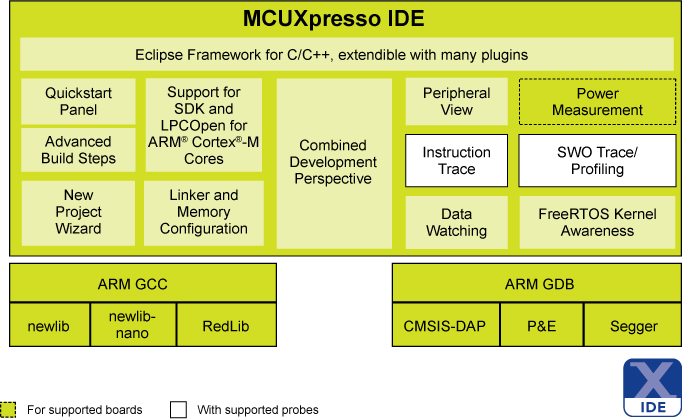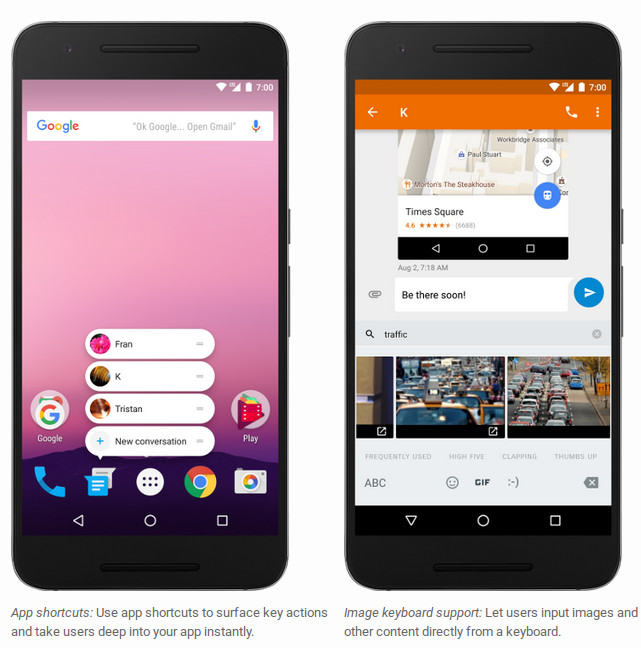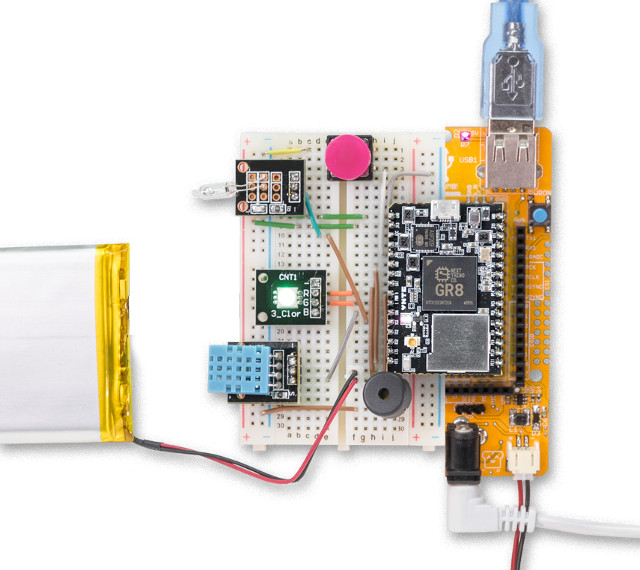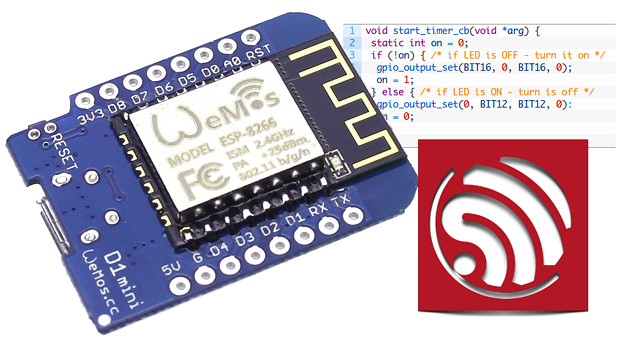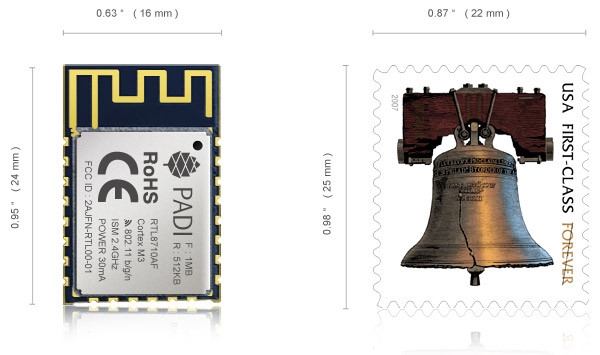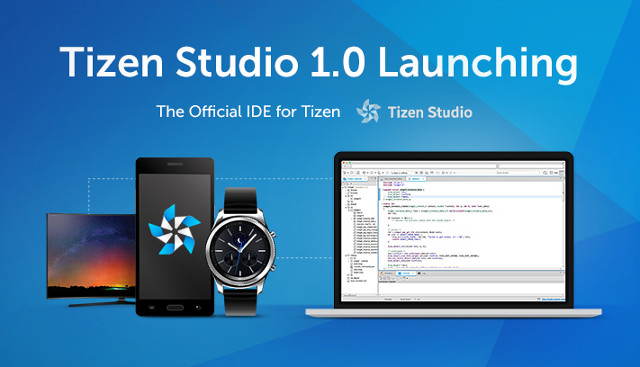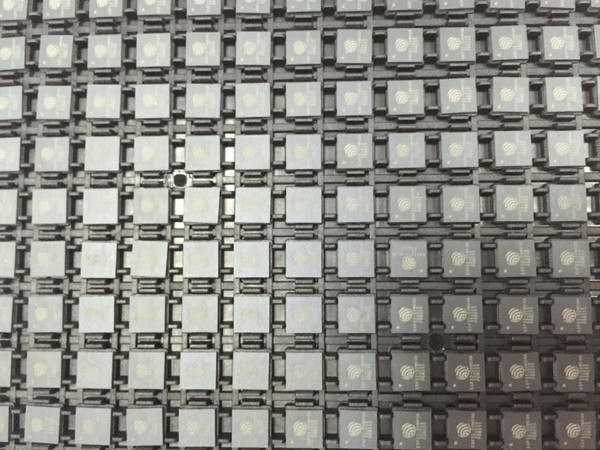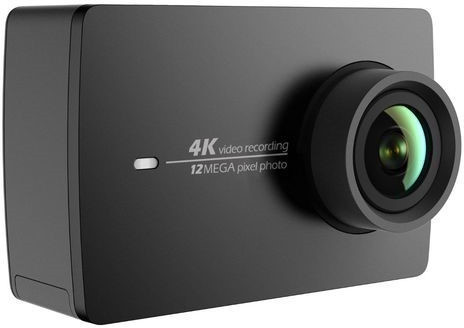After NXP bought Freescale, you had development tools for Freescale Kinetis MCUs such as Design Studio or Kenetis SDK, and others such as LPCXpresso for NXP LPC microcontrollers. The company has worked to unifying software and tools support between its ARM Cortex-M MCU families, and has now announced MCUXPresso software and tools for both NXP Kinetis and LPC MCUs. MCUXpresso unifies thousands of Kinetis and LPC microcontrollers under a set of compatible tools including MCUXpresso SDK – Open-source software MISRA-compliant development kit (SDK) with peripherals drivers, wireless & wired connectivity stacks, middleware, real-time OS, getting started guides, API documentation, and application examples. MCUXpresso IDE – Integrated development environment (IDE) for editing, compiling and debugging. It also integrates MCU-specific debugging views, code trace and profiling, multicore debugging, etc… Both free and professional edition of the IDE will be available, and LPCXpressor and previously Freescale Freedom & Tower platforms will be supported. […]
Android 7.1 Developer Preview Coming Soon with Image Keyboard Support, App Shortcuts API, etc…
Google will soon release Android 7.1 Developer Preview for Nexus 5X & Nexus 6P smartphone, as well as Pixel C tablet, listed some of the changes you can expect in the new dot release, and provided a timeline for other devices and the official launch. Android 7.1 developer and user visible changes will include: App shortcuts API will allow developer to set up to 5 shortcuts accessibly from app icon directly in the launcher. For example, a messaging app could have shortcuts to your favorite users and/or open a new conversation. Circular app icons support to create rounded icons similar to what is used in Pixel launcher. Enhanced live wallpaper metadata so that developers can show existing metadata such as label, description, and author, as well as a new context URL and title to link to more information. Image keyboard support will let user easily insert custom stickers, animated gifs, […]
CHIP Pro is a $16 WiFi and Bluetooth 4.2 System-on-Module Powered by a $6 GR8 ARM Cortex A8 SIP
Next Thing CHIP board and corresponding PocketCHIP portable Linux computer have been relatively popular due to their inexpensive price for the feature set, as for $9, you’d get an Allwinner R8 ARM Cortex A8 processor, 512MB flash, 4GB NAND flash, WiFi & Bluetooth connectivity, and plenty of I/Os, which made it very attractive for IoT applications compared to other cheap boards such as Raspberry Pi Zero and Orange Pi One. The first board was mostly designed for hobbyists, but company has now designed a new lower profile system-on-module called CHIP Pro based on Next Thing GR8 SIP combining Allwinner R8 SoC with 256MB DDR3 RAM that can be used for easy integration into your own hardware project. While the original CHIP board exposed full USB ports and interface for video signal, the new CHIP Pro is specifically designed for IoT with the following specs: SIP – Allwinner R8 ARM Cortex […]
How to Write ESP8266 Firmware from Scratch (using ESP Bare Metal SDK and C Language)
CNXSoft: This is a guest post by Alexander Alashkin, software engineer in Cesanta, working on Mongoose Embedded Web Server. Espressif’s ESP8266 had quite an evolution. Some may even call it controversial. It all started with ESP8266 being a WiFi module with a basic UART interface. But later it became clear that it’s powerful enough for embedded system. It’s essentially a module that can be used for running full-fledged applications. Espressif realized this as well and released an SDK. As first versions go, it was full of bugs but since has become significantly better. Another SDK was released which offered FreeRTOS ported to ESP. Here, I want to talk about the non-OS version. Of course, there are third-party firmwares which offer support for script language to simplify development (just Google for these), but ESP8266 is still a microchip (emphasis on MICRO) and using script language might be overkill. So what we […]
Pine64 Unveils $2 PADI IoT Stamp WiFi IoT Module with FreeRTOS SDK, Upcoming ARM mbed 5.0 Support
Realtek RTL8710 WiFi IoT modules came out as potential competitors to ESP8266 modules last month, with similar features. an ARM Cortex M3, and a pricing as low as $2 in quantities. However, documentation is often in Chinese only, and based on my experience with an RTL8710AF module limited to AT commands set for now. Software and documentation are likely to improve a lot however, as Pine64, the makers of Pine A64 boards, are about to launch their own “PADI IoT Stamp” RTL8710AF module for just $1.99 in any quantities. PADI IoT Stamp specifications: SoC – Realtek RTL8710AF ARM Cortex-M3 @ 83 MHz with 1MB ROM, 512KB RAM, and 1MB flash Connectivity – 802.11 b/g/n WiFi @ 2.4 GHz – 2.5 GHz (2400 MHz – 2483.5 MHz) with PCB antenna; Station / SoftAP / SoftAP + Station modes; Expansion headers – 22 half-holes with Up to 1x SPI @ 41.5 Mbps […]
Tizen Studio 1.0 Replaces Tizen SDK for Smartphones, Wearables and TVs
Tizen has converged all Tizen SDK for mobile, wearables, and TV to Tizen Studio since the beginning of the month, and released Tizen Studio 1.0 for developers interested in developing app for Tizen smartphones, TVs and/or smartwatches such as the latest Samsung Gear S3. So instead, you’ll now be able to select the targets platform and profiles within Tizen Studio. Some of the key changes made to the development environment in Tizen Studio 1.0 include: Launching tools: Installer, Uninstaller, and Package Manager Developing tools: IDE perspective theme, Project Wizard, Certificate Manager, and Menu and tool icons UI tools: UI Builder, Component Designer, and EDC Editor Testing tools: Emulator Testing tools: Dynamic Analyzer for memory and CPU profiling Other improvements in Tizen application development environment Tizen Studio is available for the 32-bit and 64-bit version of Windows, and Ubuntu, as well as for Mac OS with one version with the graphics […]
Espressif ESP32 WiFi & Bluetooth SoC is Now Up For Sale for $2.85
Espressif ESP32 is one of the most awaited chip for IoT applications as it combines a dual core processor, WiFi, Bluetooth 4.0, and various I/Os. The good news is that you can now purchase ESP32 for 19 RMB ($2.85) on Taobao, or if you are not based in China, contact Espressif by email at sales [at] espressif.com. Availability is however limited, and the maximum order is now 5 pieces. ESP32 modules and boards, as opposed to just the SoC, are not quite ready right now, but should become available in a few weeks. ESP-WROOM-32 is the ESP32 module developed by Espressif, and NodeMCU is also working on an ESP32 board, so we’ll get more good news very soon. You can also find documentation, hardware and software resources on a Espressif ESP32 page , including a getting started guide, ESP32 SDK, ESP32 reference manual, ESP-WROOM-32 datasheet, and more. If you are […]
Yi Technology Releases an Open API SDK for Yi and Yi 2 4K Action Cameras
Yi Technology, the maker of Yi actions cameras, often wrongly reported as Xiaomi Yi cameras as they are sold in Xiaomi stores, has now released an Open API to allow software and hardware engineers to develop products – such as drones, robots, or 360 deg. video recording setups – using their cameras. YiOpenAPI supports three types of APIs available in Java or Swift languages: Camera control (start/stop recording, capture picture, turn on/off viewfinder, etc…) Camera settings (date/time, video resolution, photo size, video standard, etc…) Camera state (record started/completed, video finder started etc…) There are also some app samples, one of which being YI360Demo available in both binary and source code, and used to control multiple Yi cameras in order to shoot 360 deg. / VR videos. You can find YiOpenAPI on github, get support on YiOpenAPI Facebook group, and sign-up for news updates on YiOpen.com. Via GeekBuying Blog Jean-Luc Aufranc […]


